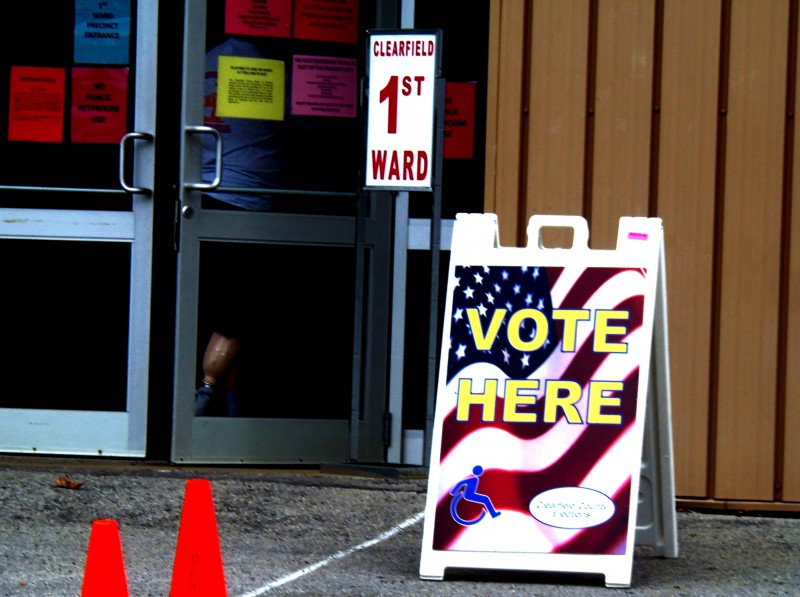CLEARFIELD – The Clearfield County Commissioners serving as the Clearfield County Board of Elections would like to address misinformation circulating about voting.
“It has come to the board’s attention of misinformation circulating that if a voter does not wish to use the voting machines, the voter has the legal right to request and utilize a paper ballot,” stated Dawn Graham, county elections director.
“The casting of paper ballots on Election Day in Clearfield County is expressly prohibited by the Pennsylvania Election Code. It is not a lawful and authorized method of voting.”
According to Graham, the voting machines in use by Clearfield County have been examined and certified to federal and state standards. Those standards include an audit capability.
She said false information may derive from a misunderstanding of the Election Code provisions for “provisional” ballots. Below, she provided the guidance from the Pennsylvania Department of State issued this month that describes this process.
Challenges to Voters to the Right to Vote and Resolution of Challenges
Grounds
- A person is presumed to be a bona fide qualified elector and must be allowed to vote if his or her name appears on the poll book.
- Voters who are lawfully in the polling place, local election officials, poll watchers and overseers may challenge a voter’s right to vote.
- Such challenges are limited to identity and residency, i.e., that the voter is not the person they say they are or that the voter does not live in the voting precinct.
- A voter’s eligibility to register to vote is not a permissible challenge at the polls. The laws governing voter registration include a process for such challenges and that process occurs before the election.
Process
- The Judge of Election has the obligation to determine if a challenge rests on a good faith basis. The Judge of Election must not permit routine or frivolous challenges that are not supported with a stated good faith basis.
- If the Judge of Election is satisfied as to the identity and residency of the voter and believes that the challenge does not have a good faith basis, the voter should be permitted to vote normally.
- If the Judge of Election cannot determine in good faith the residency or identity of the voter, the voter shall be permitted to bring another voter from the precinct to sign an affidavit vouching for the challenged voter’s identity or residence.
- Once that procedure is followed, the voter must be permitted to vote normally.
- A challenged voter who is unable or unwilling to find a witness to vouch for him or her must be given a provisional ballot.
- The elected officers of the precinct (Judge of Elections, Majority and Minority Inspectors) have the responsibility of determining the qualifications of the persons presenting themselves to vote. In the event of a disagreement, the Judge of Elections decides.
Graham also provided the following from Pennsylvania Department of State, “Guidance on Rules in Effect at the Polling Place on Election Day,” October of 2016, (Pages 4-5).
It states: “Thus, any voter casting a provisional ballot contrary to the above provisions is voting in an unlawful and void manner. The Judges of Election in the polls understand and will enforce these provisions.”
“This press release is being issued to prevent voters from operating on false information and potentially disenfranchising themselves,” Graham explained.
“Anyone having follow-up questions or concerns should contact the Clearfield County Election Office at 814-765-2642, Ext. 5053.”
